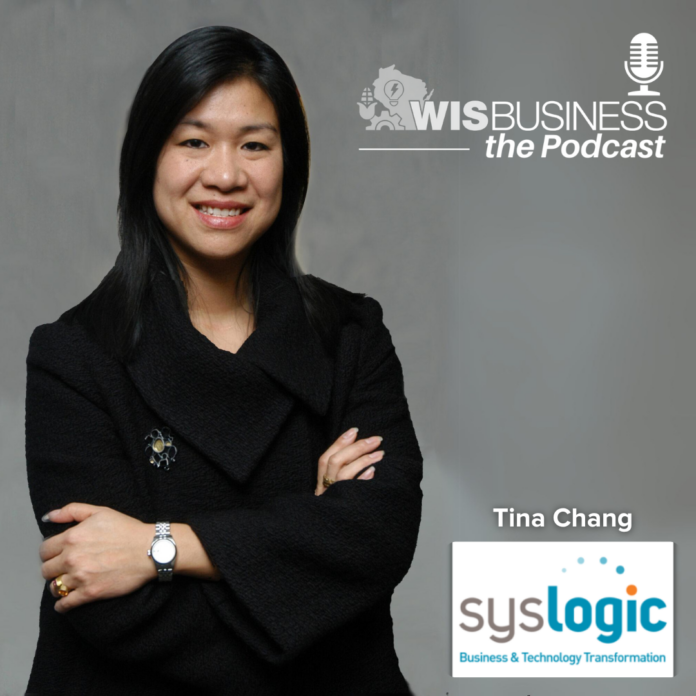This week’s episode of “WisBusiness: the Podcast” is with returning guest Tina Chang, CEO of SysLogic.
Chang shares insights from the Brookfield-based company’s recent Cybersecurity Summit, held earlier this month in Milwaukee, while also discussing some of the latest industry trends such as AI development.
“AI certainly hit us, from a societal perspective, by storm and certainly on the top of everybody’s minds,” Chang said. “AI definitely was a feature at this past Cybersecurity Summit, not only AI in its way to enable cybersecurity, but where more adoption of AI is creating more cybersecurity concern.”
SysLogic specializes in IT consulting, cybersecurity, data analytics and application development. Chang says AI is becoming “better and better” at identifying unauthorized access to online data, helping IT professionals prevent or stop attacks more quickly.
While AI improves with more data from systems and devices, Chang warns that “enabling the free flow” of information creates more potential weak points for hackers. She says developing AI safely depends heavily on data security.
“Unfortunately, all the stats are still heading in the wrong direction,” she said. “So global cybercrime is growing by 15% a year. It is both going to be $9.5 trillion globally this year and $10.5 trillion … by next year.”
Chang offers some advice for businesses to protect themselves from online threats, noting the size of the business isn’t the most important factor.
“I would say it’s who has the most interesting and valued data,” she said. “So when you think about what’s being sold on the dark web or between brokers, Social Security numbers, credit card numbers, VIP databases, passwords and logins, right? A variety of different-sized companies have and hold that valuable data.”
She says the most sensitive data should be the top priority to protect, and more businesses are understanding this and investing in protections against cyberattacks. While hacking is on the rise, human error “still plays too big of a role,” Chang noted.
“Investing in employee training and readiness is still something that’s very top of mind and should be a priority for everybody,” she said. “Because, boy, if one person accidentally clicks on a bad link, no program or monitoring service is going to prevent that 100%. So getting us to build some muscle memory on what protection and safe handling looks like is so important.”
Listen to the podcast below, sponsored by UW-Madison:






